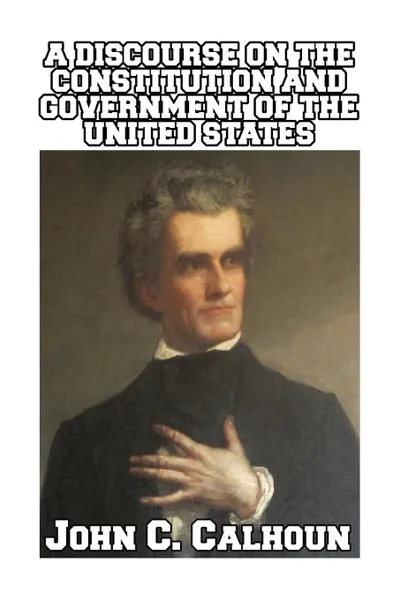A Discourse on the Constitution and Government of the United States 12+
Автор: John C. Calhoun
2019
200 страниц
Категория: Литература на иностранных языках
ISBN: 9780368867811
Язык: Английский
📒 John Caldwell Calhoun (1782-1850) was America's leading political theorist of his day who served as the seventh elected Vice President of the United States (1825-1832), the sixteenth United States Secretary of State (1844-1845), the tenth United States Secretary of War (1817-1825), as a senator from South Carolina (1845-1850), as a Member of the House of Representatives from South Carolina's 6th district (1811-1817), and as a Member of the South Carolina House of Representatives from Abbeville District (1808-1809).
He was the foremost promoter of states' rights, limited government, nullification (the right o states to overrule federal laws) and free trade. He argued that slavery was a "positive good" in that it uplifted and protected the black population. He was also an ardent proponent of minority rights, and by this he meant the white population in the Southern States.
Calhoun died eleven years before the start of the American Civil War, but he was an inspiration to the secessionists of 1860-61 and was featured on an (unissued) Confederate States of America (CSA) postage stamp and on a CSA $100 bill.
A Discourse on the Constitution and Government of the United States contains Calhoun's analysis of, and assertion that the US Constitution was designed to prevent vested interests from taking control of government and forcing their views and opinions on all others at their own expense.
His premise was that any properly organized society has to work in recognition of differences in human nature, and not against them. This former view, he maintained, was the intent and purpose of the original framers of the Constitution. Calhoun's thoughts remain an original contribution to the history of political theory. His assertion of pluralism in political representation has influenced diverse critics of society, including liberal supporters of civil rights and conservative defenders of special social and economic interests.
He was the foremost promoter of states' rights, limited government, nullification (the right o states to overrule federal laws) and free trade. He argued that slavery was a "positive good" in that it uplifted and protected the black population. He was also an ardent proponent of minority rights, and by this he meant the white population in the Southern States.
Calhoun died eleven years before the start of the American Civil War, but he was an inspiration to the secessionists of 1860-61 and was featured on an (unissued) Confederate States of America (CSA) postage stamp and on a CSA $100 bill.
A Discourse on the Constitution and Government of the United States contains Calhoun's analysis of, and assertion that the US Constitution was designed to prevent vested interests from taking control of government and forcing their views and opinions on all others at their own expense.
His premise was that any properly organized society has to work in recognition of differences in human nature, and not against them. This former view, he maintained, was the intent and purpose of the original framers of the Constitution. Calhoun's thoughts remain an original contribution to the history of political theory. His assertion of pluralism in political representation has influenced diverse critics of society, including liberal supporters of civil rights and conservative defenders of special social and economic interests.
Мнения
